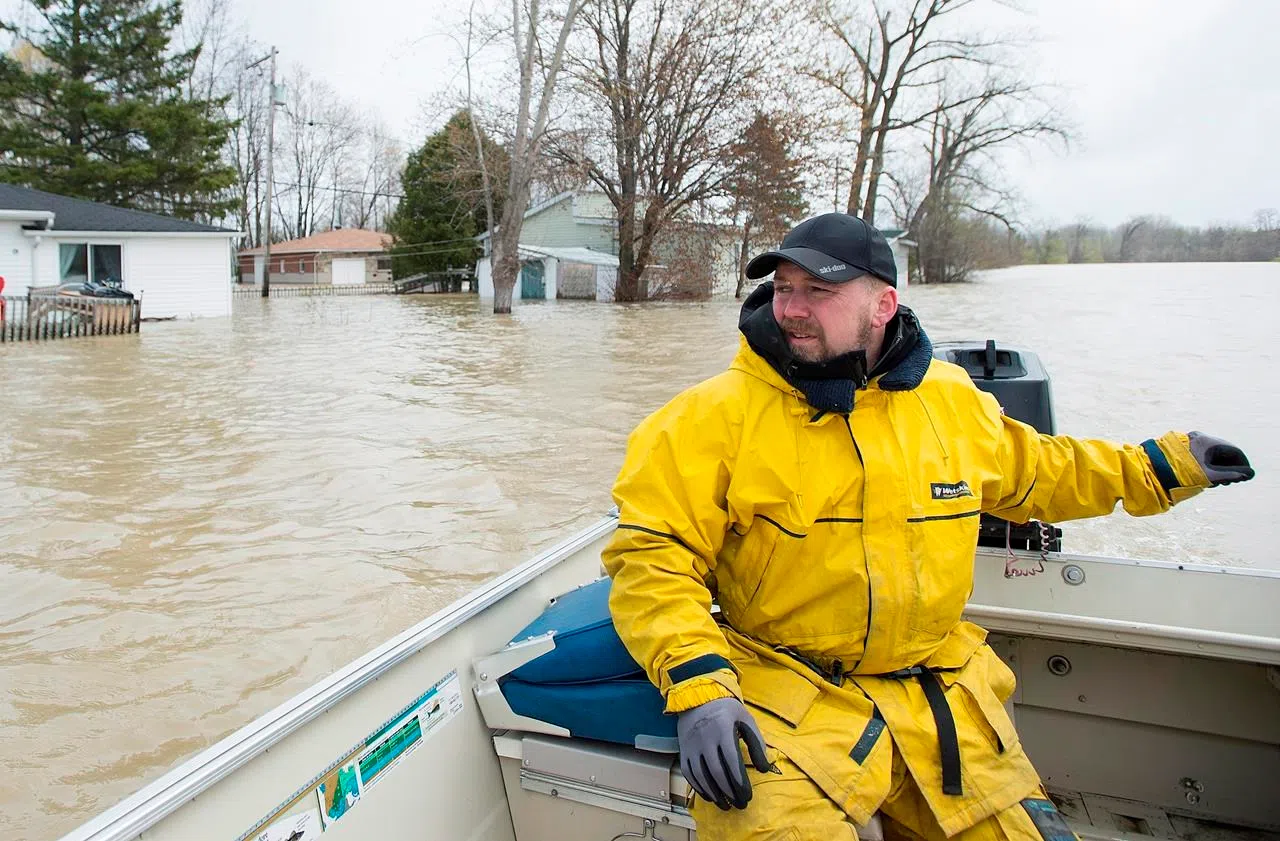
Stories of Quebecers living through historic flooding and helping one another
RIGAUD, Que. — The town of Rigaud, Que., west of Montreal along the Ottawa River, has been one of the hardest hit municipalities in the province since major flooding began last week. Entire streets are submerged and neighbourhoods along the river are accessible only by boat. Here are stories from some Rigaud residents who are trying to salvage their homes and also help neighbours in need:
Chris Amerides
Last Thursday, when the water started rising along the Ottawa River, Chris Amerides knew his neighbourhood was in trouble. The businessman decided he better buy a motorboat or he would risk not being able to protect his home from flood water — but they were all sold out.
“I had to go to Varennes,” he said Monday, referring to a community roughly 100 kilometres east of Rigaud. “There wasn’t much around here. I couldn’t even rent one.”


